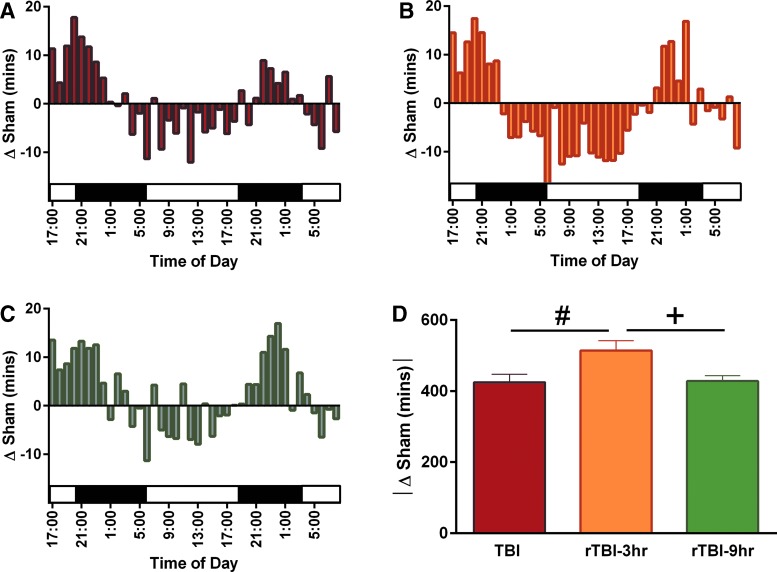FIG. 3.
Brain-injured mice slept less during the light cycle, but more during the dark cycle, so each mouse's percent sleep was converted to cumulative minutes slept and the absolute change in cumulative minutes was compared to control sham sleep. A single diffuse TBI and rTBI resulted in a change in the absolute value of cumulative sleep measured in minutes compared to uninjured shams. Mice subjected to a (A) single diffuse TBI, (B) rTBI 3 h, or (C) rTBI 9 h resulted primarily in increased cumulative sleep during the dark cycles and decreased sleep during the light cycles. We further analyzed this sleep as the absolute change in cumulative sleep compared to shams, and results indicated that (D) rTBI 3 h mice had a significantly greater cumulative change in sleep compared to both shams and the rTBI 9 h mice (F(2,30) = 0.8654; p = 0.0154). #Indicates significance from TBI; +indicates significance from rTBI 9 h (mean ± SEM; sham, n = 15; TBI, n = 12; rTBI 3 h, n = 13; rTBI 9 h, n = 8). rTBI, repetitive traumatic brain injury; SEM, standard error of the mean.

